A question that parents are facing more frequently due to the raise of social media and change on how people are communicating with each other, is when should I allow my child open a certain social media account? Is it a question that can be answered easily? There is no simple yes or no answer to this question before many background queries have been researched? A simpler comparative would be to ask what reaction a parent has when their child enquires if they can join a local club such as the Youth Club. Questions that may come up for this is:
Who organises this club?
Initially, the foundation required resides on the facts of the people behind the club and the people in the club. We won’t find confidence in dropping our kids off to a social club when we have no idea of the people participation and responsibility of the club. How often will they need to go? Is this a one night per week or per month? Where will it be taking place? Will there be supervision by vetted people with no criminal records? Is it going to be the same as the other similar clubs or different? If this rings familiar with you, then you can understand the questions people or maybe yourself may have when children ask you to join clubs online.
What clubs are available online?
Clubs that we are familiar with offline, are named channels online; in terms of where people go to be social and communicate with other peers in a fun way. Some of the social media channels; such as Bebo, MySpace, Skype, Flicker,Twitter, Facebook, Instagram, LinkedIn, YouTube, Google+, PhotoBucket, Tinder, Snapchat and more have become household names. This is the way the digital generation now live. Time has changed, environments have moved, platforms are growing, possibilities endless, but we as parents cannot grasp fully the benefits or downsides of social media.
Just don’t let the kids on the internet
There is no one strike course of action to cure the anxiety we have over our children’s interaction with people online, other that learn to stream this activity into our daily list of responsibilities. The Internet is here, social media is not going away, children want to have virtual lives, so we just need to pick ourselves up and get off the “poor me I don’t understand” train and learn to adapt to this change. Our ignorance of the online world is not good enough if we are to be a digital parent. Yes, 75% of parents of children under 18 are on social media sites such as Facebook according to a Pew Internet Survey, but their knowledge of other social media sites such as Instagram, Twitter and Pinterest is lower with only sub 28% of parents active on these platforms. This leaves it difficult when their children spend more time on other platforms and not just Facebook. In 2014, a similar survey asked teens where they mix with each other the most and school is still top of the list, but interestingly social media is where they spent 55% of their friendship time with each other.
So what age should children be when they own a social media account?
There are guidelines that social media platforms use to enable all people to have a safe and enjoyable experience on their channel and one of their prerequisites is to make sure you are at least 13 years of age when signing up. Why 13 and not 10, 11 or 15? The age was a guideline set for new users when signing up and it was hoped to deter young children from going on social media. Facebook for example did not want people seeing information, advertising and links targeted at certain age groups to be seen for younger people. For example, a man of 50 years of age may see advertisements in Facebook for online dating, erectile dysfunction, lingerie for partners and how to get a 6 pack. Now put this in front of a teenager who has come to a stage of development where the opposite sex becomes full of curiosity, what journey will these links take him? Social media takes us on a journey of self-discovery on how we are and off course it will make some changes to our mental state. How do we handle the fact when someone makes fun of us online? Are we mature enough to make correct postings and photos online where the whole world can see?
The fact in America, Facebook cannot keep data from children under age of 13 either, where you must give consent of handing over your information when you sign up for an account. Data protection have limits set, but for those over 13, we consent to giving personal information, personal photos, agree to put security settings in place and lots more when we tick the box and Sign up. When I enquired from children in national schools in Ireland what ages they chose to use to bypass the 13 years old limit on Facebook I was shocked. Some kids said 14 and 15 years old which was ok, others used 55, 60 or 80 years old. This may sound funny now, but if you can imagine what type of people will come up on their recommended friends which is based on location, friends of friends, age and gender. They may get friend requests from older people. Also, some advertising that will appear on the side line, would not be for their youthful eyes. So it’ best to keep their age close to 13 even if they are not 13!
“Everyone else is on Facebook”
If you get the threat “Everyone else in my class are on Facebook?” ask the child how many exactly are on Facebook and can you go on Facebook to check their profiles. It is worth digging about to see what their peers are doing online, so that it would give you an indication of what type of material and blogging your child will follow if they have a Facebook account. Check out Facebook profiles of children you know that are around the same age as your child also, but not necessarily friends with your child.
Is my Child mature enough?
Same question applies when wanting to know, “Should my 7 year old have an iPhone?”. Children mature at different speeds, methods and stages. How does your child deal with interacting with others offline? How much respect does your child give their elders and people in general? Is your child a leader or a follower? All these simple answers will built a profile of the person they are online from how they are offline. Off course, as a parent we are blinded by love and fondness for them, that sometimes it is hard to see the true soul underneath this cloak.
Educate your child
Education is the keystone to learning both positives and negatives online. Explain in simple terms what happens when they post a simple comment or photo. Where does it end up? Who can see it? What happens when I delete it? Share local stories about people’s experience online and let them know how difficult you find social media. Social media can aid development of good friendships and relationships. It’s a wonderful way to keep in contact with family and friends that you don’t see on a regular basis. Explain the friendship and connections that they can make online and that not everyone is their “Friend”. Sit down with your child and ask them to explain what type of people their friends would be in a virtual world. Example, would their mates dad’s, uncles and mothers be their online friends? If they open an account, put time limits on their usage so that you can share their experiences at the beginning, together.
All these points and information is to give you as much information to make an informed decision when your child asks if they can have an Instagram account or any other account at that rate. But, whichever decision you make, stick by it.
Contact Niall Mulrine
If you would like a workshop for a parents association, workplace conference, sports centre talk and many other venues, please contact me on 086-2377033
For more information & tips on Cyber Bullying & Internet Safety log on to www.CyberSafetyAdvice.com or contact Niall Mulrine 086-2377033 if you wish to hear how you can haven Internet Safety workshop in your area.

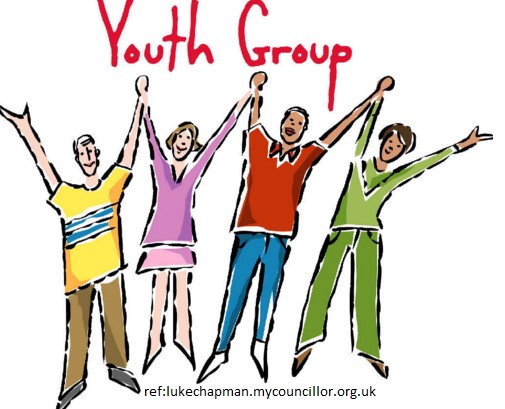
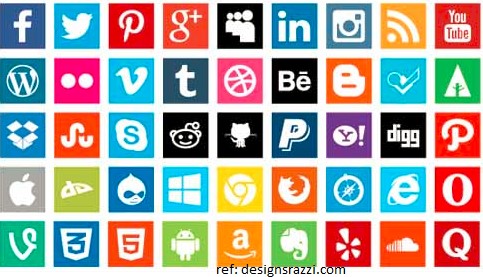
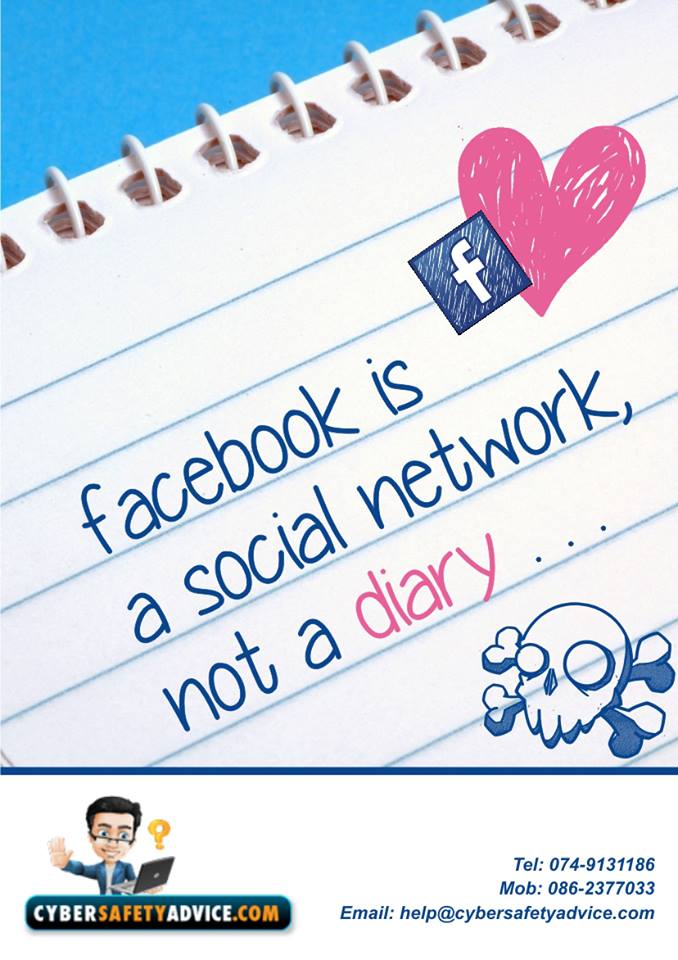
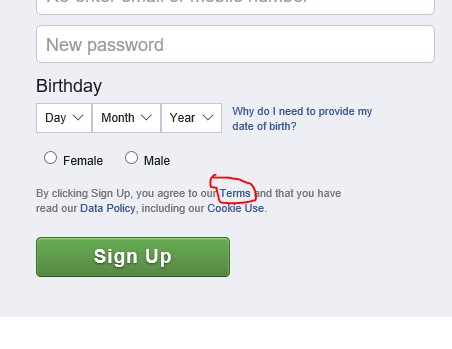
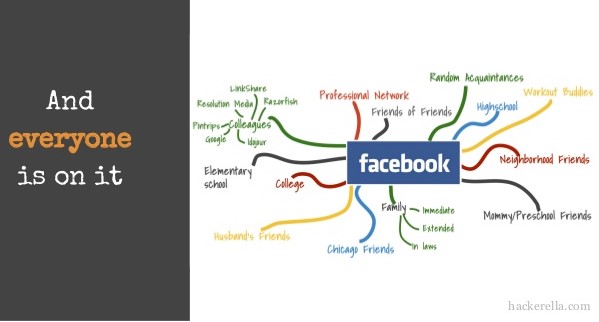








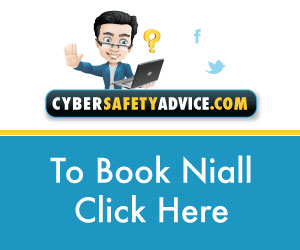

No comments yet.